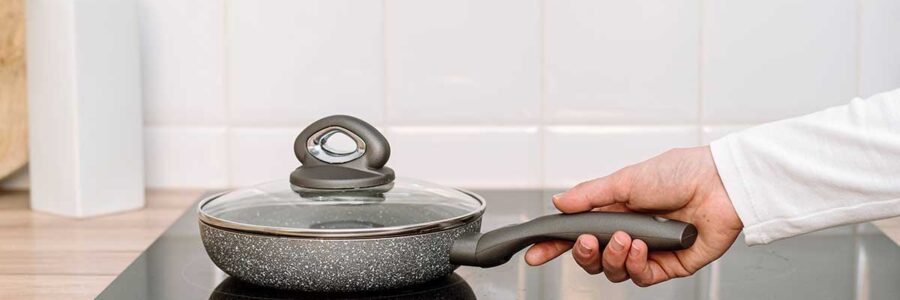Cookware plays a critical role in keeping meals free from toxins. Ceramic-coated pans are often promoted as a safer alternative to Teflon and other non-stick options, but are they truly non-toxic?
Why Teflon Is a Problem
When heated, traditional non-stick pans like Teflon release harmful chemicals like PFOA, which can leach into food or enter the air as toxic fumes. These chemicals are linked to health issues like hormone disruption, cancer, and respiratory problems. Overheated Teflon is especially dangerous, emitting fumes that can harm household pets. If Teflon is still part of your cookware lineup, it’s time to eliminate it.[1]
Ceramic-Coated Pans: Better, But Not Perfect
Ceramic-coated pans are often considered safer because they’re free from PFOA and other harmful chemicals. However, these pans aren’t entirely ceramic. They’re metal pans with a ceramic coating that can wear down over time. Scratched or degraded coatings can release particles like titanium dioxide, raising concerns about potential toxicity. Although ceramic-coated pans are an upgrade from Teflon, their relatively short history means they don’t have the same safety track record as materials like stainless steel or cast iron.
Safe Alternatives for Non-Toxic Cooking
If safety is your priority, opt for cookware materials with proven reliability. 18/0 stainless steel, carbon steel, and cast iron are all excellent choices. These materials are free from harmful coatings, durable, and safe for everyday use. When properly seasoned, carbon steel and cast iron also develop natural non-stick properties, making them functional and non-toxic.
Steps You Can Take
- Remove Teflon cookware from your kitchen to avoid exposure to harmful chemicals.
- Use ceramic-coated pans cautiously, replacing them if the coating starts to degrade.
- Invest in long-lasting, toxin-free cookware like stainless steel, carbon steel, or cast iron.
Ceramic-coated pans offer a safer alternative to Teflon, but they’re not the ultimate solution for a non-toxic kitchen. Choosing cookware with a proven history of safety is the best way to protect your health and enjoy meals free of harmful contaminants.
References:
- Sajid, Muhammad, and Muhammad Ilyas. “PTFE-Coated Non-Stick Cookware and Toxicity Concerns: A Perspective.” Environmental Science and Pollution Research International, vol. 24, no. 30, Oct. 2017, pp. 23436–40.


